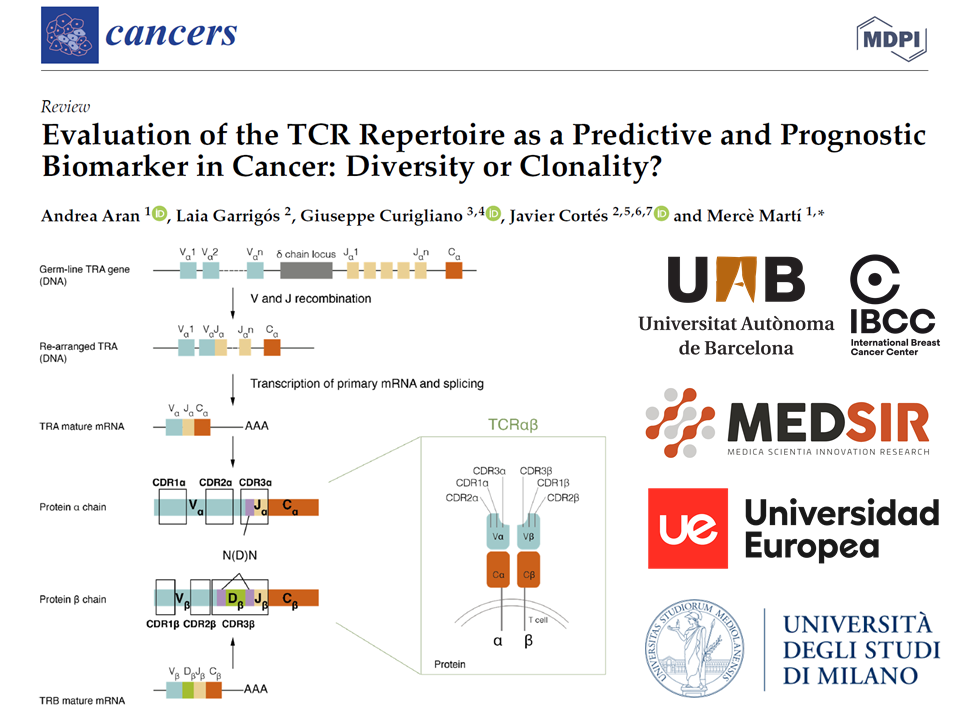Abstract:
T cells play a vital role in the anti-tumoural response, and the presence of tumour-infiltrating lymphocytes has shown to be directly correlated with a good prognosis in several cancer types. Nevertheless, some patients presenting tumour-infiltrating lymphocytes do not have favourable outcomes. The TCR determines the specificities of T cells, so the analysis of the TCR repertoire has been recently considered to be a potential biomarker for patients’ progression and response to therapies with immune checkpoint inhibitors. The TCR repertoire is one of the multiple elements comprising the immune system and is conditioned by several factors, including tissue type, tumour mutational burden, and patients’ immunogenetics. Its study is crucial to understanding the anti-tumoural response, how to beneficially modulate the immune response with current or new treatments, and how to better predict the prognosis. Here, we present a critical review including essential studies on TCR repertoire conducted in patients with cancer with the aim to draw the current conclusions and try to elucidate whether it is better to encounter higher clonality with few TCRs at higher frequencies, or higher diversity with many different TCRs at lower frequencies.
Accés a l’article (open access):

